Arthonia didyma Körb.
Denkschr. schles. Ges. vaterl. Kultur: 235, 1853.
Synonyms: Arthonia aspersella Leight.; Arthonia atrofuscella Nyl.; Arthonia pineti Körb.; Arthonia sapineti Nyl.; Caldesia didyma (Körb.) Trevis.
Distribution: N - Ven, TAA (Nascimbene & al. 2007b, 2014, Nascimbene 2014, Trindade & al. 2021), Lomb, Piem (Piervittori 2003, Isocrono & al. 2004, Giordani & Malaspina 2016). C - Tosc (Stofer 2006, Brunialti & Frati 2010, Brunialti & al. 2012b), Umb (Ravera 1998, Ravera & al. 2006), Laz (Ravera 2001, 2006c, Nimis & Tretiach 2004, Stofer 2006), Abr (Nimis & Tretiach 1999, Corona & al. 2016), Mol (Caporale & al. 2008, Ravera & Genovesi 2010, Ravera & al. 2010), Sar (Rizzi & al. 2011, Cossu 2013, Di Nuzzo & al. 2022). S - Pugl (Nimis & Tretiach 1999), Bas (Potenza 2006, Potenza & al. 2010, Potenza & Fascetti 2012), Cal (Puntillo 1996).
Description: Thallus crustose, mostly endosubstratic and inconspicuous, pale brown or olive-grey, sometimes with a pink hue when fresh. Apothecia arthonioid, emarginate, more or less immersed, rounded, shortly ellipsoid or weakly and irregularly lobed, 0.1-0.5 mm wide, 45-100 μm tall, with a dark brown to brown-black, epruinose, mostly flat disc. Epithecium yellowish brown to reddish-brown, c. 5 μm high, K+ purple-violet or K-, the pigments dissolving; hymenium colourless to spottily pale orange-brown, the pigmented parts K+ purple-violet or K-, 33-50 μm high; paraphysoids 0.5-1.5 μm thick, brown-walled, the apical cells to 2.5 μm wide; hypothecium red-brown, 5-30 μm high, the pigment K+ grey or olive. Asci 8-spored, subglobose, semi-fissitunicate, with a large apical dome and a distinct ocular chamber, Arthonia-type. Ascospores 1-septate and slightly constricted at septum, with subequal to unequal cells ovoid,, at first hyaline and smooth, later brownish and warted, (12-)14-18 x (4-)5-8 μm, thick-walled, but without a gelatinous sheath. Pycnidia rare, immersed, the wall red-brown, K+ olive-grey. Conidia bacilliform, 3.5-4 x c. 0.7 μm. Photobiont trentepohlioid. Spot tests: K-, C-, KC-, P-. Chemistry: thallus without lichen substances; anthraquinones often (but not always) present in pigmented parts of the apothecia. Note: a cool-temperate species found on smooth, acid bark in humid areas, most frequent in the beech belt of Tyrrhenian Italy. Forms with apothecia devoid of anthraquinones were formerly treated as A. aspersella Nyl.
Growth form: Crustose
Substrata: bark
Photobiont: Trentepohlia
Reproductive strategy: mainly sexual
Most common in areas with a humid-warm climate (e.g. most of Tyrrenian Italy)
Commonnes-rarity: (info)
Alpine belt: absent
Subalpine belt: absent
Oromediterranean belt: absent
Montane belt: rather rare
Submediterranean belt: extremely rare
Padanian area: absent
Humid submediterranean belt: extremely rare
Humid mediterranean belt: extremely rare
Dry mediterranean belt: absent

Predictive model
Herbarium samples


Felix Schumm – CC BY-SA 4.0
[14965], Germany, Baden-Württemberg, Kreis Tübingen, zwischen Dettenhausen und Bebenhausen, bei der Bärlochhütte im schattigen Buchenwald, 450 m


Felix Schumm – CC BY-SA 4.0
[19622], Germany, Baden-Württemberg, Kreis Göppingen, am Parkplatz nahe der Zachersmühle im Heiligenwald, auf Laubbaum, 48.75277° N, 9.61983° E, 364 m. Leg. et det. F. Schumm, 07.02.2017


Felix Schumm – CC BY-SA 4.0
[19622], Germany, Baden-Württemberg, Kreis Göppingen, am Parkplatz nahe der Zachersmühle im Heiligenwald, auf Laubbaum, 48.75277° N, 9.61983° E, 364 m. Leg. et det. F. Schumm, 07.02.2017


Felix Schumm – CC BY-SA 4.0
[19622], Germany, Baden-Württemberg, Kreis Göppingen, am Parkplatz nahe der Zachersmühle im Heiligenwald, auf Laubbaum, 48.75277° N, 9.61983° E, 364 m. Leg. et det. F. Schumm, 07.02.2017


Felix Schumm – CC BY-SA 4.0
[14981], Germany, Baden-Württemberg, Kreis Göppingen, Marbachtal an Fagus, 350 m.

Courtesy Olivier Gonnet - Source: https://www.afl-lichenologie.fr/Photos_AFL/Photos_AFL_A/Textes_A2/Arthonia_didyma.htm
France, Session AFL 2014 - Parc de Mercantour

Courtesy Olivier Gonnet - Source: https://www.afl-lichenologie.fr/Photos_AFL/Photos_AFL_A/Textes_A2/Arthonia_didyma.htm
France, Session AFL 2014 - Parc de Mercantour

Courtesy Olivier Gonnet - Source: https://www.afl-lichenologie.fr/Photos_AFL/Photos_AFL_A/Textes_A2/Arthonia_didyma.htm
France, Session AFL 2014 - Parc de Mercantour

Courtesy Olivier Gonnet - Source: https://www.afl-lichenologie.fr/Photos_AFL/Photos_AFL_A/Textes_A2/Arthonia_didyma.htm
France, Session AFL 2014 - Parc de Mercantour

Jacques Haine - Source: http://www.lichensmaritimes.org/index.php?task=fiche&lichen=395&lang=en
France, Argonne

Bernard Bouffinet - Source: http://www.lichensmaritimes.org/index.php?task=fiche&lichen=395&lang=en
France, Cranou

Bernard Bouffinet - Source: http://www.lichensmaritimes.org/index.php?task=fiche&lichen=395&lang=en
France, Cranou

Jacques Haine - Source: http://www.lichensmaritimes.org/index.php?task=fiche&lichen=395&lang=en
France, Argonne

Jacques Haine - Source: http://www.lichensmaritimes.org/index.php?task=fiche&lichen=395&lang=en
France, Argonne

Ulrich Kirschbaum CC BY-SA 4.0 - Source: https://www.thm.de/lse/ulrich-kirschbaum/flechtenbilder
On smooth bark of deciduous trees.Central Europe: Germany.
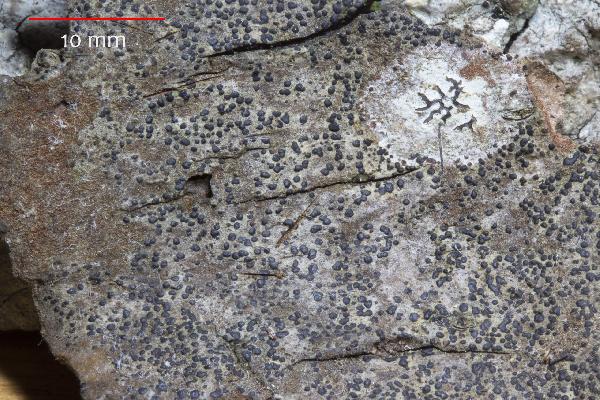
Marta Gonzalez Garcia - Centro de Estudios Micologicos Asturianos
Spain, Jardín Botánico Atlántico de Gijón (Asturias), 10-XI-2023, en corteza de Pinus sylvestris, leg. & det. M. González.
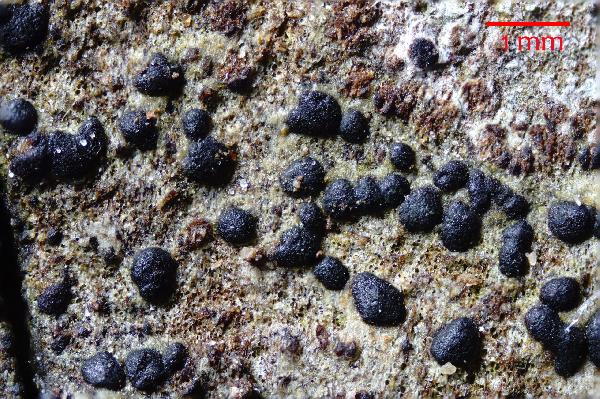
Marta Gonzalez Garcia - Centro de Estudios Micologicos Asturianos
Spain, Jardín Botánico Atlántico de Gijón (Asturias), 10-XI-2023, en corteza de Pinus sylvestris, leg. & det. M. González.
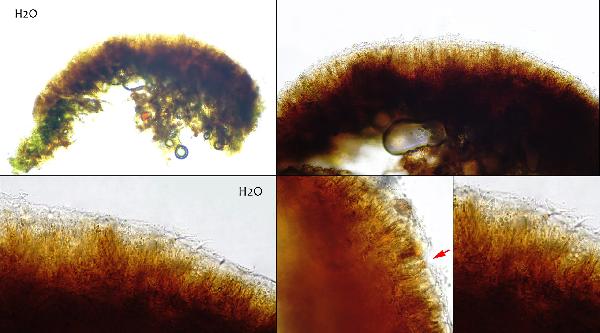
Marta Gonzalez Garcia - Centro de Estudios Micologicos Asturianos
Spain, Jardín Botánico Atlántico de Gijón (Asturias), 10-XI-2023, en corteza de Pinus sylvestris, leg. & det. M. González.
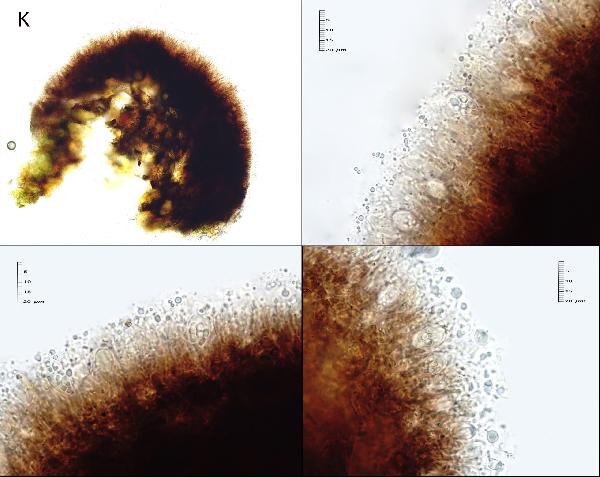
Marta Gonzalez Garcia - Centro de Estudios Micologicos Asturianos
Spain, Jardín Botánico Atlántico de Gijón (Asturias), 10-XI-2023, en corteza de Pinus sylvestris, leg. & det. M. González.

Marta Gonzalez Garcia - Centro de Estudios Micologicos Asturianos
Spain, Jardín Botánico Atlántico de Gijón (Asturias), 10-XI-2023, en corteza de Pinus sylvestris, leg. & det. M. González.

Marta Gonzalez Garcia - Centro de Estudios Micologicos Asturianos
Spain, Jardín Botánico Atlántico de Gijón (Asturias), 10-XI-2023, en corteza de Pinus sylvestris, leg. & det. M. González.
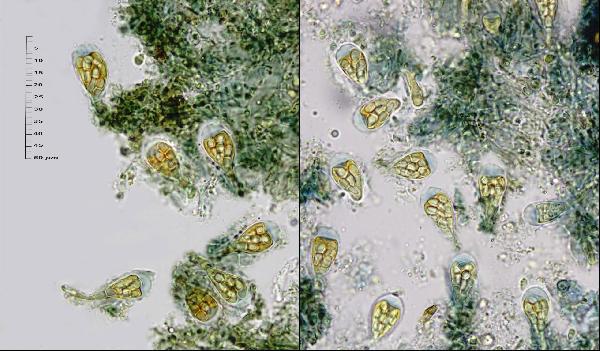
Marta Gonzalez Garcia - Centro de Estudios Micologicos Asturianos
Spain, Jardín Botánico Atlántico de Gijón (Asturias), 10-XI-2023, en corteza de Pinus sylvestris, leg. & det. M. González.
Growth form: Crustose
Substrata: bark
Photobiont: Trentepohlia
Reproductive strategy: mainly sexual
Most common in areas with a humid-warm climate (e.g. most of Tyrrenian Italy)
Commonnes-rarity: (info)
Alpine belt: absent
Subalpine belt: absent
Oromediterranean belt: absent
Montane belt: rather rare
Submediterranean belt: extremely rare
Padanian area: absent
Humid submediterranean belt: extremely rare
Humid mediterranean belt: extremely rare
Dry mediterranean belt: absent

Predictive model
| Herbarium samples |


Felix Schumm – CC BY-SA 4.0
[14965], Germany, Baden-Württemberg, Kreis Tübingen, zwischen Dettenhausen und Bebenhausen, bei der Bärlochhütte im schattigen Buchenwald, 450 m


Felix Schumm – CC BY-SA 4.0
[19622], Germany, Baden-Württemberg, Kreis Göppingen, am Parkplatz nahe der Zachersmühle im Heiligenwald, auf Laubbaum, 48.75277° N, 9.61983° E, 364 m. Leg. et det. F. Schumm, 07.02.2017


Felix Schumm – CC BY-SA 4.0
[19622], Germany, Baden-Württemberg, Kreis Göppingen, am Parkplatz nahe der Zachersmühle im Heiligenwald, auf Laubbaum, 48.75277° N, 9.61983° E, 364 m. Leg. et det. F. Schumm, 07.02.2017


Felix Schumm – CC BY-SA 4.0
[19622], Germany, Baden-Württemberg, Kreis Göppingen, am Parkplatz nahe der Zachersmühle im Heiligenwald, auf Laubbaum, 48.75277° N, 9.61983° E, 364 m. Leg. et det. F. Schumm, 07.02.2017


Felix Schumm – CC BY-SA 4.0
[14981], Germany, Baden-Württemberg, Kreis Göppingen, Marbachtal an Fagus, 350 m.

Courtesy Olivier Gonnet - Source: https://www.afl-lichenologie.fr/Photos_AFL/Photos_AFL_A/Textes_A2/Arthonia_didyma.htm
France, Session AFL 2014 - Parc de Mercantour

Courtesy Olivier Gonnet - Source: https://www.afl-lichenologie.fr/Photos_AFL/Photos_AFL_A/Textes_A2/Arthonia_didyma.htm
France, Session AFL 2014 - Parc de Mercantour

Courtesy Olivier Gonnet - Source: https://www.afl-lichenologie.fr/Photos_AFL/Photos_AFL_A/Textes_A2/Arthonia_didyma.htm
France, Session AFL 2014 - Parc de Mercantour

Courtesy Olivier Gonnet - Source: https://www.afl-lichenologie.fr/Photos_AFL/Photos_AFL_A/Textes_A2/Arthonia_didyma.htm
France, Session AFL 2014 - Parc de Mercantour

Jacques Haine - Source: http://www.lichensmaritimes.org/index.php?task=fiche&lichen=395&lang=en
France, Argonne

Bernard Bouffinet - Source: http://www.lichensmaritimes.org/index.php?task=fiche&lichen=395&lang=en
France, Cranou

Bernard Bouffinet - Source: http://www.lichensmaritimes.org/index.php?task=fiche&lichen=395&lang=en
France, Cranou

Jacques Haine - Source: http://www.lichensmaritimes.org/index.php?task=fiche&lichen=395&lang=en
France, Argonne

Jacques Haine - Source: http://www.lichensmaritimes.org/index.php?task=fiche&lichen=395&lang=en
France, Argonne

Ulrich Kirschbaum CC BY-SA 4.0 - Source: https://www.thm.de/lse/ulrich-kirschbaum/flechtenbilder
On smooth bark of deciduous trees.Central Europe: Germany.

Marta Gonzalez Garcia - Centro de Estudios Micologicos Asturianos
Spain, Jardín Botánico Atlántico de Gijón (Asturias), 10-XI-2023, en corteza de Pinus sylvestris, leg. & det. M. González.

Marta Gonzalez Garcia - Centro de Estudios Micologicos Asturianos
Spain, Jardín Botánico Atlántico de Gijón (Asturias), 10-XI-2023, en corteza de Pinus sylvestris, leg. & det. M. González.

Marta Gonzalez Garcia - Centro de Estudios Micologicos Asturianos
Spain, Jardín Botánico Atlántico de Gijón (Asturias), 10-XI-2023, en corteza de Pinus sylvestris, leg. & det. M. González.

Marta Gonzalez Garcia - Centro de Estudios Micologicos Asturianos
Spain, Jardín Botánico Atlántico de Gijón (Asturias), 10-XI-2023, en corteza de Pinus sylvestris, leg. & det. M. González.

Marta Gonzalez Garcia - Centro de Estudios Micologicos Asturianos
Spain, Jardín Botánico Atlántico de Gijón (Asturias), 10-XI-2023, en corteza de Pinus sylvestris, leg. & det. M. González.

Marta Gonzalez Garcia - Centro de Estudios Micologicos Asturianos
Spain, Jardín Botánico Atlántico de Gijón (Asturias), 10-XI-2023, en corteza de Pinus sylvestris, leg. & det. M. González.

 INDEX FUNGORUM
INDEX FUNGORUM
 GBIF
GBIF
 DOLICHENS
DOLICHENS









